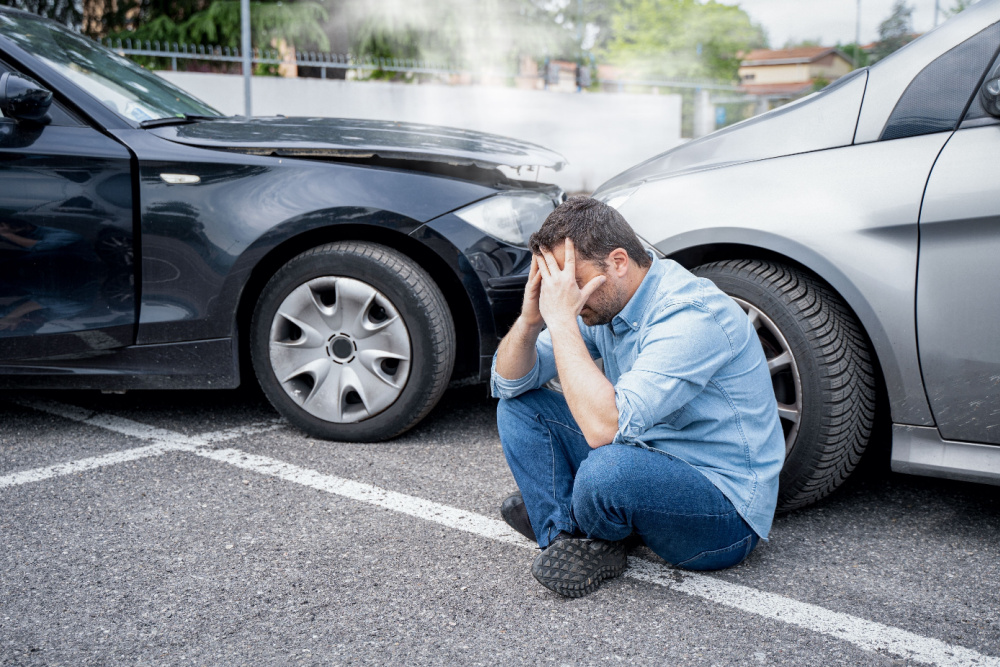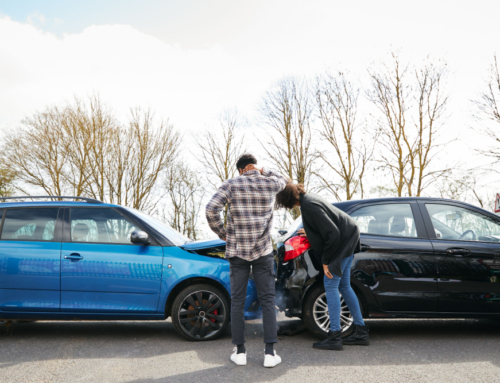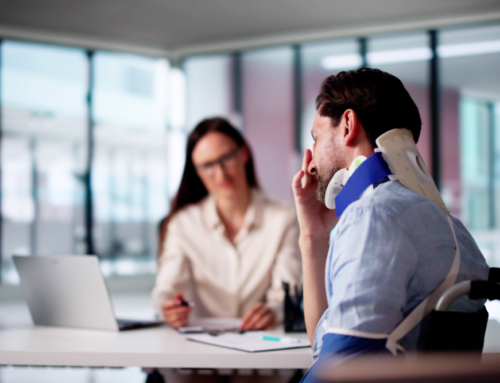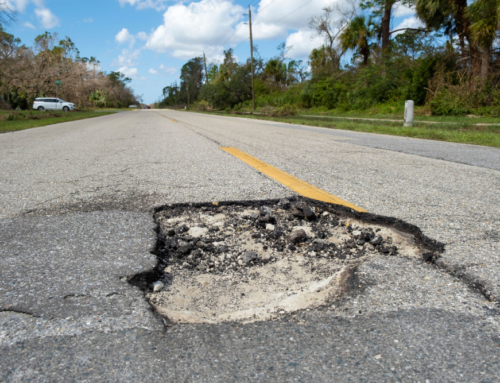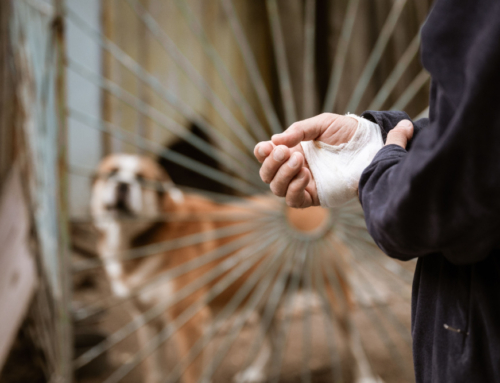A car accident can be a traumatic and disorienting experience, leaving victims unsure of their next steps. The moments following an accident are crucial not only for your immediate health and safety but also for protecting your legal rights. At Payas, Payas, and Payas, we understand how overwhelming this situation can be, and we’re here to guide you through every step. This article provides a detailed guide on what to do after a car accident to ensure you’re fully prepared to handle the legal and financial consequences.
Assessing the Situation: Immediate Steps to Take
Ensure Safety and Call for Help
The first and most important step after a car accident is to ensure the safety of everyone involved. Move your vehicle out of traffic to a safe location, such as the shoulder of the road. Turn on your hazard lights to alert other drivers of the accident and reduce the risk of further collisions. Check yourself and others for injuries. If anyone is injured, call 911 immediately to request medical assistance. Even if injuries seem minor, it’s crucial to seek medical attention, as some injuries may not be immediately apparent.
Calling for help is also necessary to get law enforcement on the scene. Police officers will assess the situation, document the accident, and create an official report that will be essential for any future legal or insurance claims. Cooperate with the officers, providing accurate information without admitting fault or speculating about the cause of the accident.
Exchange Information with the Other Party
After ensuring safety and contacting the authorities, the next step is to exchange information with the other parties involved in the accident. This information includes names, contact details, driver’s license numbers, license plate numbers, and insurance information. It’s also helpful to note the make, model, and color of the vehicles involved. Be courteous and cooperative, but avoid discussing fault or details about how the accident occurred, as this can complicate your legal position later.
If there are witnesses to the accident, collect their contact information as well. Witness statements can be crucial in establishing the facts of the case, especially if there are disputes about how the accident occurred.
Gathering Evidence: Building a Strong Case
Document the Scene
Gathering evidence at the scene of the accident is crucial for building a strong case. Use your smartphone to take photographs or videos of the accident scene from multiple angles. Capture the position of the vehicles, the damage sustained, skid marks, road conditions, traffic signs, and any other relevant details. These images can serve as critical evidence if there are disputes about the cause of the accident or the extent of the damage.
Additionally, make notes about the accident while the details are still fresh in your mind. Record the time and date of the accident, weather conditions, the direction each vehicle was traveling, and any other observations that might be relevant. If possible, draw a diagram of the accident scene, showing the positions of the vehicles before and after the collision.
Collect Witness Statements
Witnesses can provide invaluable third-party accounts of the accident. If any bystanders saw the accident, ask for their contact information and a brief statement of what they observed. Witnesses may later be asked to provide a more detailed statement to law enforcement or your attorney. Their testimony can help corroborate your version of events and strengthen your case.
It’s important to be polite and respectful when speaking to witnesses. Explain that their testimony could be critical in resolving the situation fairly and that you may need to contact them later for additional information.
Seeking Medical Attention: Prioritizing Health and Documentation
Immediate Medical Evaluation
Even if you feel fine after the accident, it’s essential to seek medical attention as soon as possible. Some injuries, such as whiplash, concussions, or internal injuries, may not present symptoms immediately but can have serious long-term effects if left untreated. A medical professional can thoroughly evaluate your condition, provide necessary treatment, and document any injuries related to the accident.
Medical records play a crucial role in personal injury claims. They provide a documented link between the accident and your injuries, which is vital for securing compensation for medical expenses, lost wages, and pain and suffering. Ensure that you keep all records, including treatment plans, prescriptions, and follow-up appointments.
Follow-up care and Ongoing Treatment
In the days and weeks following the accident, adhere to the treatment plan prescribed by your healthcare provider. Attend all follow-up appointments and follow medical advice carefully. Not only is this important for your recovery, but it also demonstrates that you are taking your injuries seriously and following through with the necessary care.
Failure to follow medical advice or gaps in treatment can be used by insurance companies or defense attorneys to argue that your injuries are not as severe as claimed or that they are unrelated to the accident. Consistent and documented treatment helps to strengthen your case and ensures that you receive the compensation you deserve.
Reporting the Accident: Legal and Insurance Considerations
File a Police Report
Filing a police report is a critical step in the aftermath of a car accident. Even if the accident seems minor, having an official record can protect you from potential disputes or false claims. The police report will include details of the accident, statements from both parties, witness information, and the officer’s assessment of fault. This document is often the foundation of any legal or insurance claim, making it an essential piece of evidence.
When interacting with the police, provide honest and factual information. Avoid making any statements that could be interpreted as an admission of fault, and focus on the facts of the incident. Request a copy of the police report for your records, as you may need it for future legal or insurance purposes.
Notify Your Insurance Company
After ensuring that a police report has been filed, contact your insurance company to report the accident. Most insurance policies require prompt reporting of accidents, and failure to do so could result in the denial of your claim. Provide your insurer with the details of the accident, including the names of the other parties involved, the police report number, and any relevant information or documentation you have gathered.
Your insurance company will likely assign a claims adjuster to evaluate the damages and determine the next steps. Cooperate with the adjuster, but be cautious about providing recorded statements or accepting initial settlement offers without consulting an attorney. Insurance companies often seek to minimize payouts, and early settlement offers may not fully cover your damages.
Legal Representation: Protecting Your Rights and Interests
The Importance of Hiring a Personal Injury Attorney
Navigating the legal complexities of a car accident claim can be challenging, especially when dealing with insurance companies and potential legal disputes. Hiring a personal injury attorney can help protect your rights and ensure that you receive fair compensation for your injuries and damages. An experienced attorney will handle all aspects of your case, including communication with insurance companies, gathering evidence, and negotiating settlements.
Your attorney will also evaluate the full extent of your damages, including medical expenses, lost wages, pain and suffering, and future costs related to your injuries. This comprehensive approach ensures that you are fully compensated for both the immediate and long-term impacts of the accident.
What to Expect from Your Attorney
When you hire a personal injury attorney, you can expect professional guidance and advocacy throughout the legal process. Your attorney will conduct a thorough investigation of the accident, gather evidence, consult with experts if necessary, and build a strong case on your behalf. They will also represent you in negotiations with the insurance company and, if needed, take your case to trial to seek the compensation you deserve.
Communication is key during this process. A good attorney will keep you informed about the progress of your case, explain your legal options, and provide clear advice on the best course of action. Your attorney’s goal is to secure the best possible outcome for your case, ensuring that your rights are protected and that you receive the justice you deserve.
Conclusion
The aftermath of a car accident can be overwhelming, but taking the right steps can make all the difference in protecting your health, rights, and financial future. By ensuring safety, gathering evidence, seeking medical attention, and securing legal representation, you can navigate the challenges that follow an accident with confidence.
If you or a loved one has been involved in a car accident, don’t wait to take action. Contact Payas, Payas, and Payas today for a free consultation with our experienced personal injury attorneys. We are committed to helping you secure the compensation you deserve and will stand by your side every step of the way. Let us handle the legal complexities so you can focus on your recovery. Act now to protect your future and ensure that your rights are fully protected.



